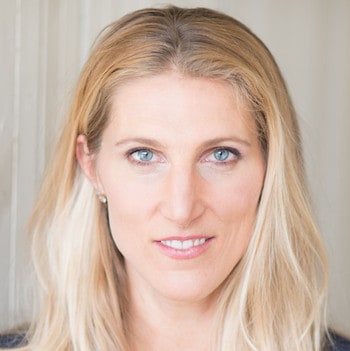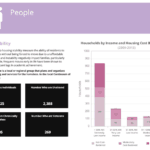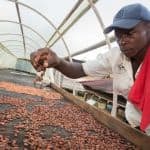Redefining Global Health: Nations Ascending vs. People Cured
Dr. Vanessa Kerry is the co-founder and CEO of Seed Global Health which helped establish the Global Health Service Partnership, a novel public-private partnership designed to address the shortage of health professionals in emerging economies. Kerry, the daughter of former U.S. Secretary of State John Kerry, will deliver a keynote address entitled “Redefining Global Health for 2017 and On: Partnership, Diplomacy and Sustainability” at Unite for Sight’s Global Health & Innovation Conference April 22-23 at Yale University. In this email Q&A, she talks about sustainability in global health, overcoming current political challenges and true corporate citizenship.
Kyle Poplin: How would you like to see global health redefined?
 Dr. Vanessa Kerry (left): Global health is about our individual – and collective – commitment to helping people thrive around the world. When health comes first, everything else follows – increased security, improved gender equity, educational outcomes, and so on. So while the number of lives we save and we improve is an important indicator of the success or failure of our work, I would like to see “global health” defined not only by how many people are served, but by the strength of families, communities and countries that are able to ascend because of the strong foundation of health that the global health community has provided as a precursor.
Dr. Vanessa Kerry (left): Global health is about our individual – and collective – commitment to helping people thrive around the world. When health comes first, everything else follows – increased security, improved gender equity, educational outcomes, and so on. So while the number of lives we save and we improve is an important indicator of the success or failure of our work, I would like to see “global health” defined not only by how many people are served, but by the strength of families, communities and countries that are able to ascend because of the strong foundation of health that the global health community has provided as a precursor.
KP: Everyone talks about making global health care interventions sustainable. Why is sustainability in global health so hard to achieve?
VK: Enduring improvements in global health – and especially in the global health workforce that delivers care – require investment in things that aren’t seen as “sexy,” even in our own development community. People understand crisis response, they understand famine and drought relief, they understand disease treatment. To be sustainable, though, investments in things like infrastructure, human resources, skills-based capacity building and institutional governance are critical. That’s one reason why at Seed Global Health, we center our model on a 12-month fellowship where volunteers aren’t just responding to an immediate need, they’re teaching the next generation of physicians and nurses – as well as other, local health educators – so that skills are strengthened within the clinicians who will be treating patients and teaching students at local facilities for decades to come.
KP: What global health interventions in recent years do you most admire and appreciate?
VK: Newborn respiratory distress is one of the most common and treatable causes of neonatal morbidity and mortality in the world.
One of our former volunteers, Dr. Esther Johnston, and Aliasghar Khaki, her student, demonstrate this power. Shortly after Esther began working as a Global Health Service Partnership (GHSP) volunteer in Tanzania, she found the medical students she was teaching had not been fully trained in neonatal resuscitation. She made it her mission to help change training for her students and eliminate preventable infant deaths on the wards. As a first step, she organized a course in neonatal resuscitation for the 36 students in her class.
Aliasgar was one of those students. He vividly remembers the first time he and several fellow students visited the neonatal intensive care unit after they had completed their training.
“We saw a baby lying there who had been termed dead,” Aliasghar recalls. “But when we walked up closer, we saw a faint pulse. So we started the resuscitation measures we had learned. And after 10 or 11 minutes, we got a very strong pulse. That was a huge thing for us. We felt like, ‘Wow. We had a direct impact. We saved a life.’ Now Aliasghar and his fellow students have made it their mission to pass the lifesaving knowledge and techniques they have learned along to other health workers and facilities. They continue to work with GHSP volunteers and together have organized workshops for students and nurses in the hospitals where they work. They have also expanded trainings to reach rural health facilities and communities.
KP: Could you talk specifically about partnerships – how you find good partners and why they’re so important?
VK: Good partnerships are the cornerstone of successful programs. Our collaboration with Peace Corps and the President’s Emergency Plan for AIDS Relief (PEPFAR) – called the Global Health Service Partnership – has been successful because at our core, we share the same values and the same desire to connect American ingenuity and expertise to colleagues in less-resourced parts of the world in a way that will help grow and sustain locally led progress. Our collaboration focuses on leveraging all of our strengths and areas of expertise so that we can do more with less and complement one another to bring the program to fruition. At the center of this program, though, is the partnerships we have with the sites where, and colleagues with whom, we work. Now in our fourth year and having helped train over 8,300 doctors, nurses and midwives, we have helped establish trust that allows us all to problem solve more effectively.
KP: How has the current global trend toward nationalism and protectionism impacted partnerships, collaborations and public health in general?
VK: People have to come before politics. There are far too many women, men, adolescents and children dying from preventable and treatable conditions in every part of the globe. And we’ve seen that when agencies life DFID in the U.K., CIDA in Canada, Norad in Norway, and USAID and PEPFAR in the U.S. step up to the plate, it not only accelerates progress toward improved public health but also invites others from the private and public sector to commit as well. If we do nothing, we will face a shortage of 18 million health workers by 2030. That’s 18 million people who need to be delivering babies, giving vaccinations, treating diseases like Zika and conducting surgeries, who simply will not exist in the health workforce. And the implications of such a shortage go far beyond national boundaries. If we can’t prevent and contain threats like Ebola, because we haven’t invested in enough skilled nurses and physicians in local clinics and hospitals, that can easily cross walls and oceans to become a threat at home. Public health is an endeavor far greater than any nation’s individual interests or borders, and we hope that even amid global political challenges, we will see increased investment in a sector that can keep everyone healthy, safe and more secure.
KP: What role can/should private companies play in redefining global health?
VK: The private sector is an important partner in advancing global health. They not only provide necessary funding to help organizations like Seed to train and teach the next generation of nurses and physicians, they also help practitioners innovate by investing in the research and development required to identify new methods, technologies and interventions as well as help spur market solutions that can be widely adopted. The best global corporate citizens know that healthy communities buoy healthy economies, and so from both a humanitarian and business angle, it’s in their interest to partner with Seed and other nonprofit organizations to deliver health around the world.
KP: What has been Seed Global Health’s most noteworthy accomplishment so far?
VK: In just our first four volunteer cohorts, Seed has been proud to place 155 fellows across 15 medical and nursing specialties in partner facilities across Liberia, Malawi, Swaziland, Tanzania and Uganda. In data collected from our first three years, those volunteers have taught more than 450 courses, working alongside local faculty on academic curricula, course design and teaching techniques for a total of more than 128,000 service hours. Our proudest accomplishment is not only the quality of service we see from our volunteers, but also the sustained positive impact of their work. Dr. Sam Olum was a young resident and student of GHSP physician/educator Dr. Ari Hoffman in northern Uganda. Today, Sam is an educator himself, training young medical students. He attests that Ari was a large inspiration for him, and he hopes that he can do the same for his students.
KP: How will you know when Seed Global Health has been successful?
VK: Seed believes in a future in which every country has a robust health workforce that is able to meet the health needs of its population – and seeing that become a reality will be the ultimate measure of success. If we’re successful, communities and entire populations will see greater longevity, productivity and quality of life from the “ripple effect” created when more-skilled clinicians are better prepared to serve the population’s needs as well as to help invest in the future of local health systems. If we’re successful, we will no longer be needed. By strengthening and supporting the health workforce, our goal is to ensure that the broad range of health needs – including maternal, newborn and child health care (MNCH) and treatment of non-communicable diseases (NCDs) – that face the communities we work in will be effectively met and managed by the country health systems. Good health is fundamental to participation in society and access to quality care will allow collective and individual contributions to stronger economies, greater security and sustained prosperity. It starts with training one nurse or one physician, but at scale this work has the potential to drastically transform our collective future.
Kyle Poplin is editor of NextBillion Health Care.
Photo courtesy of Seed Global Health
- Categories
- Health Care



